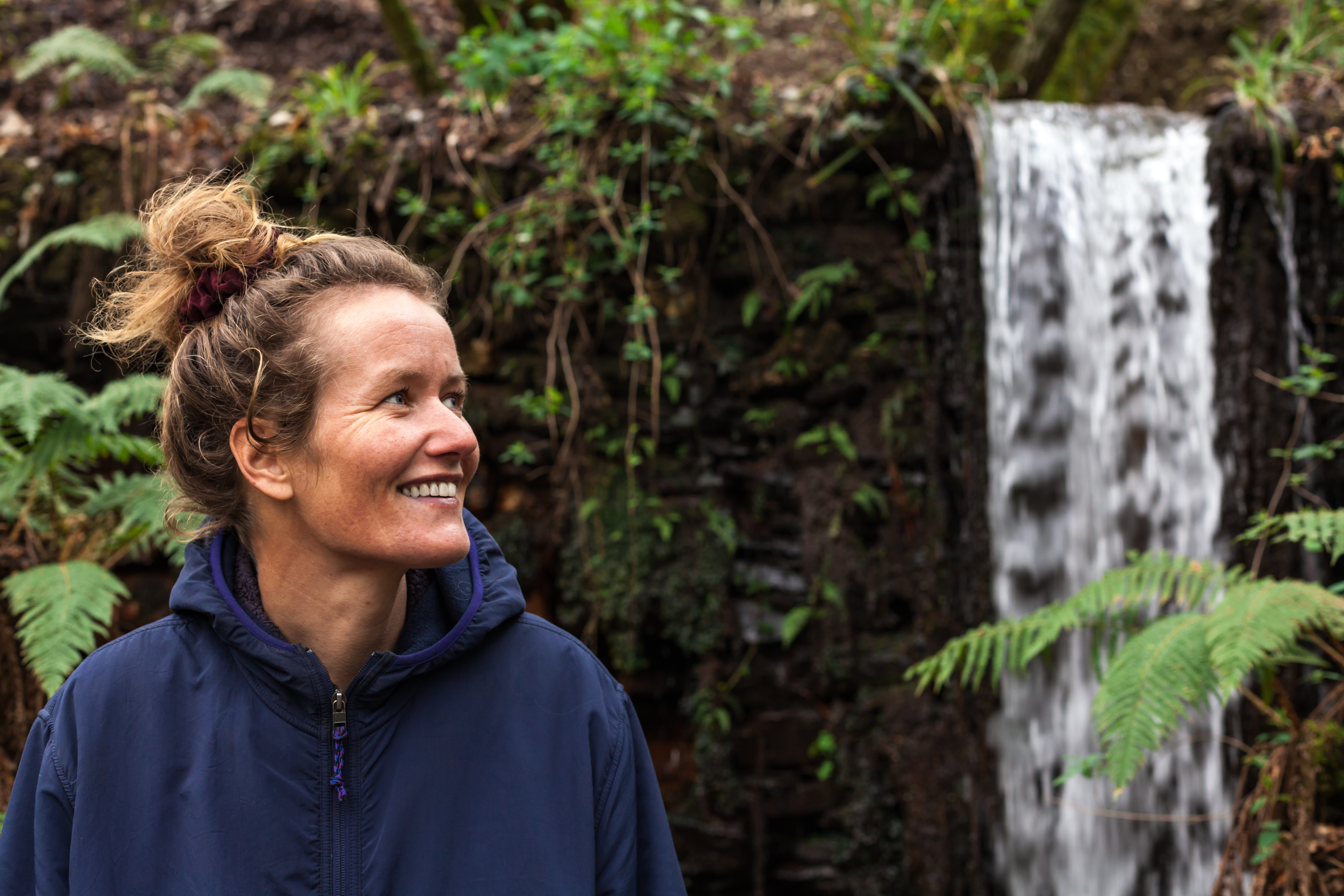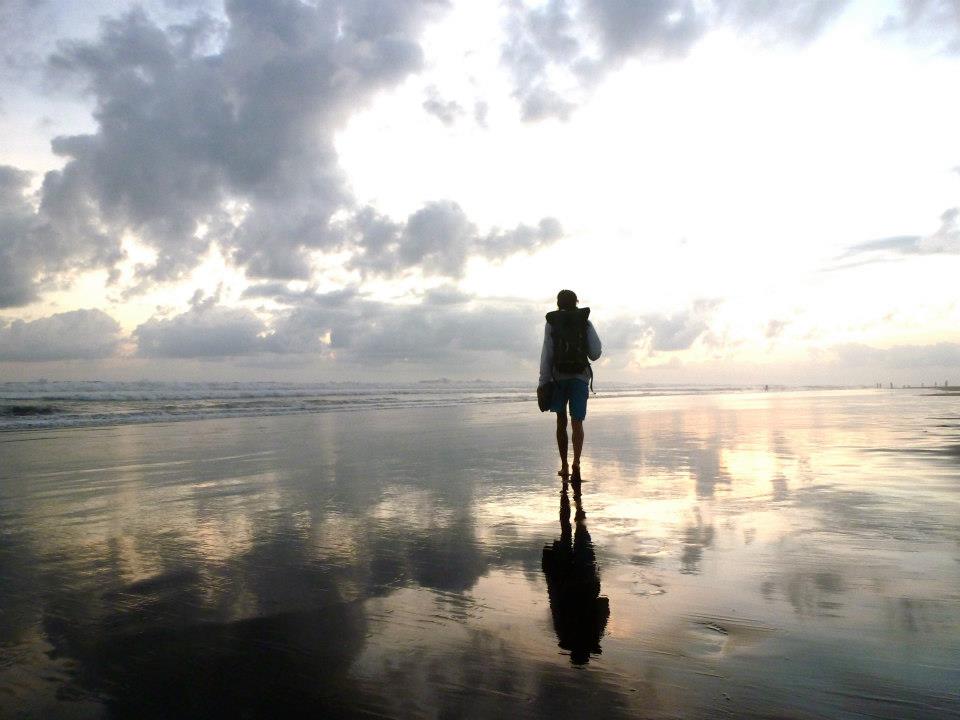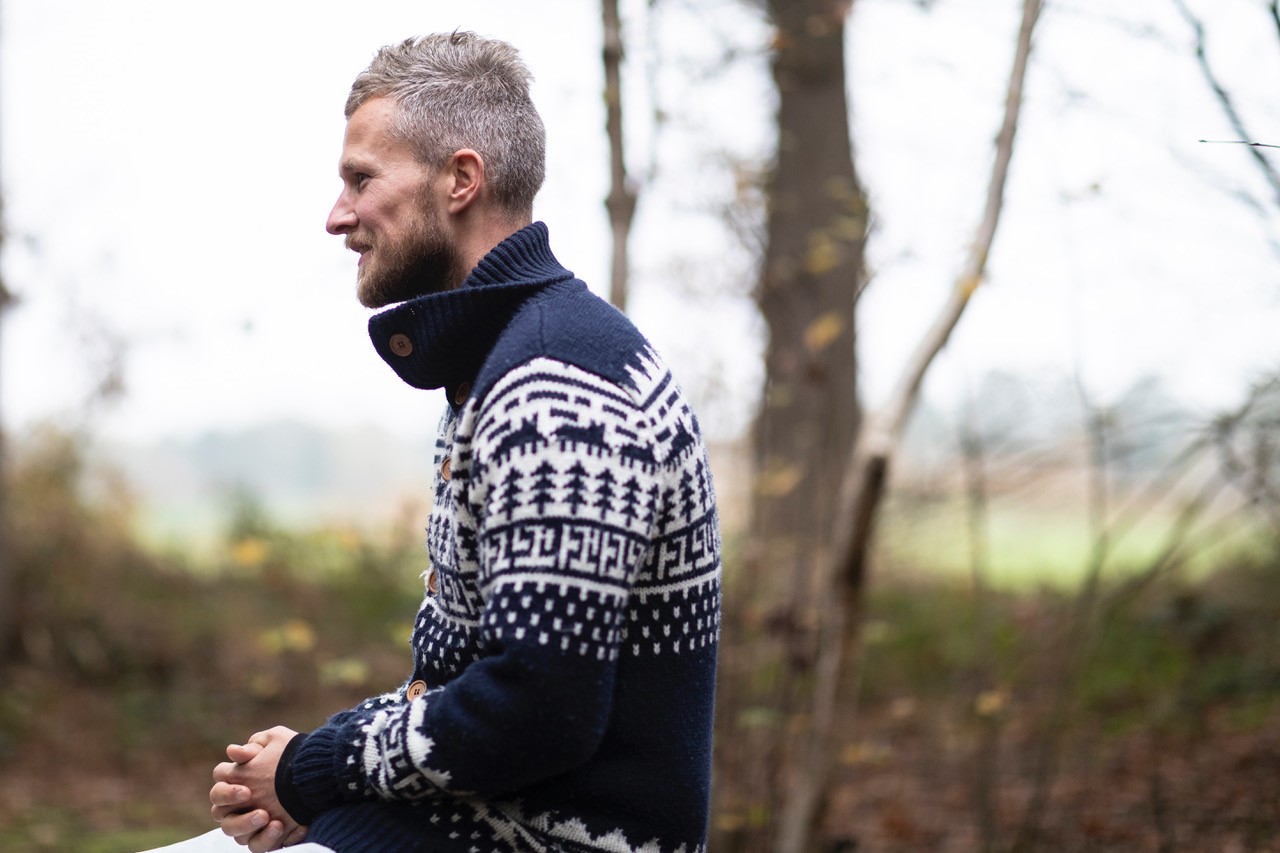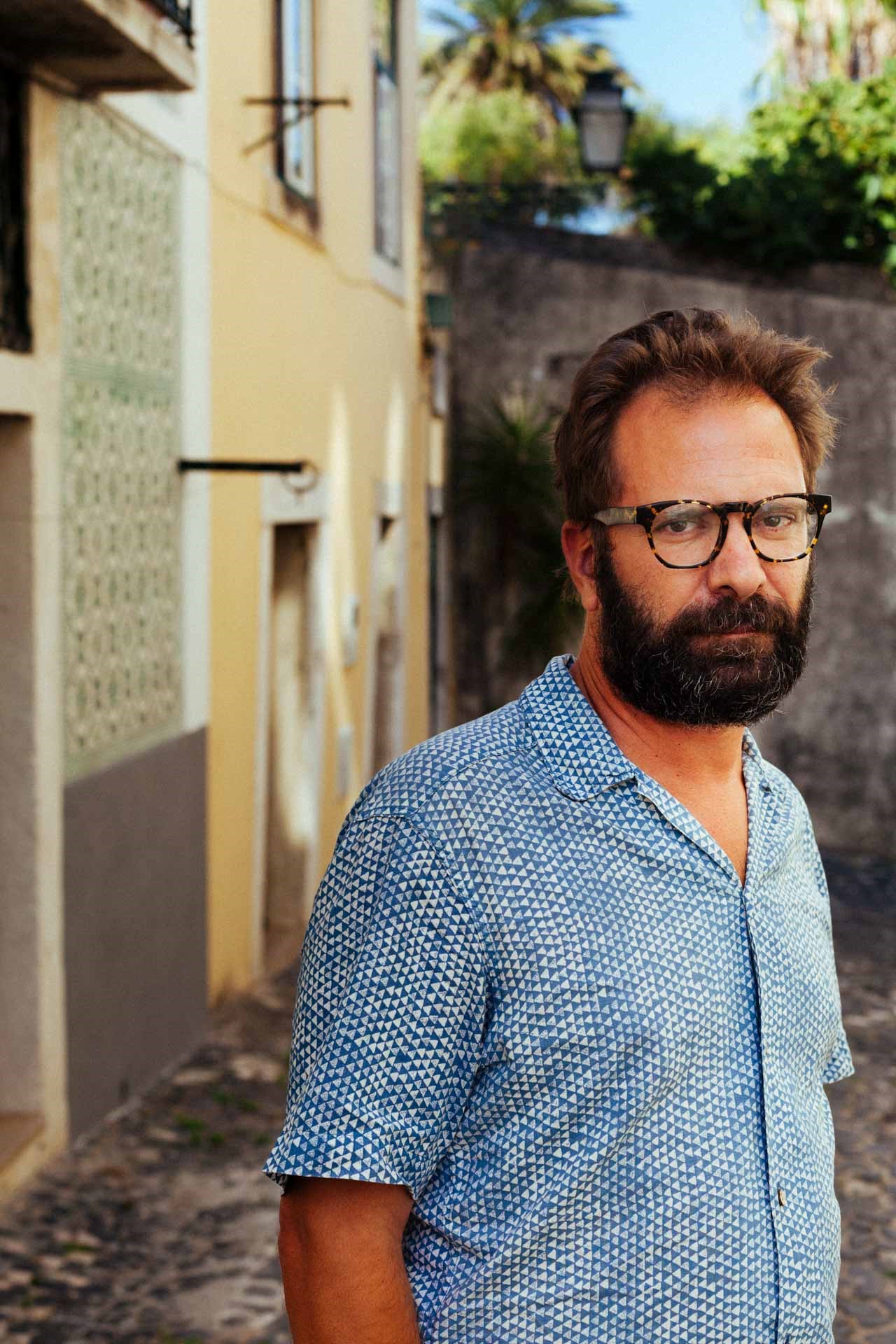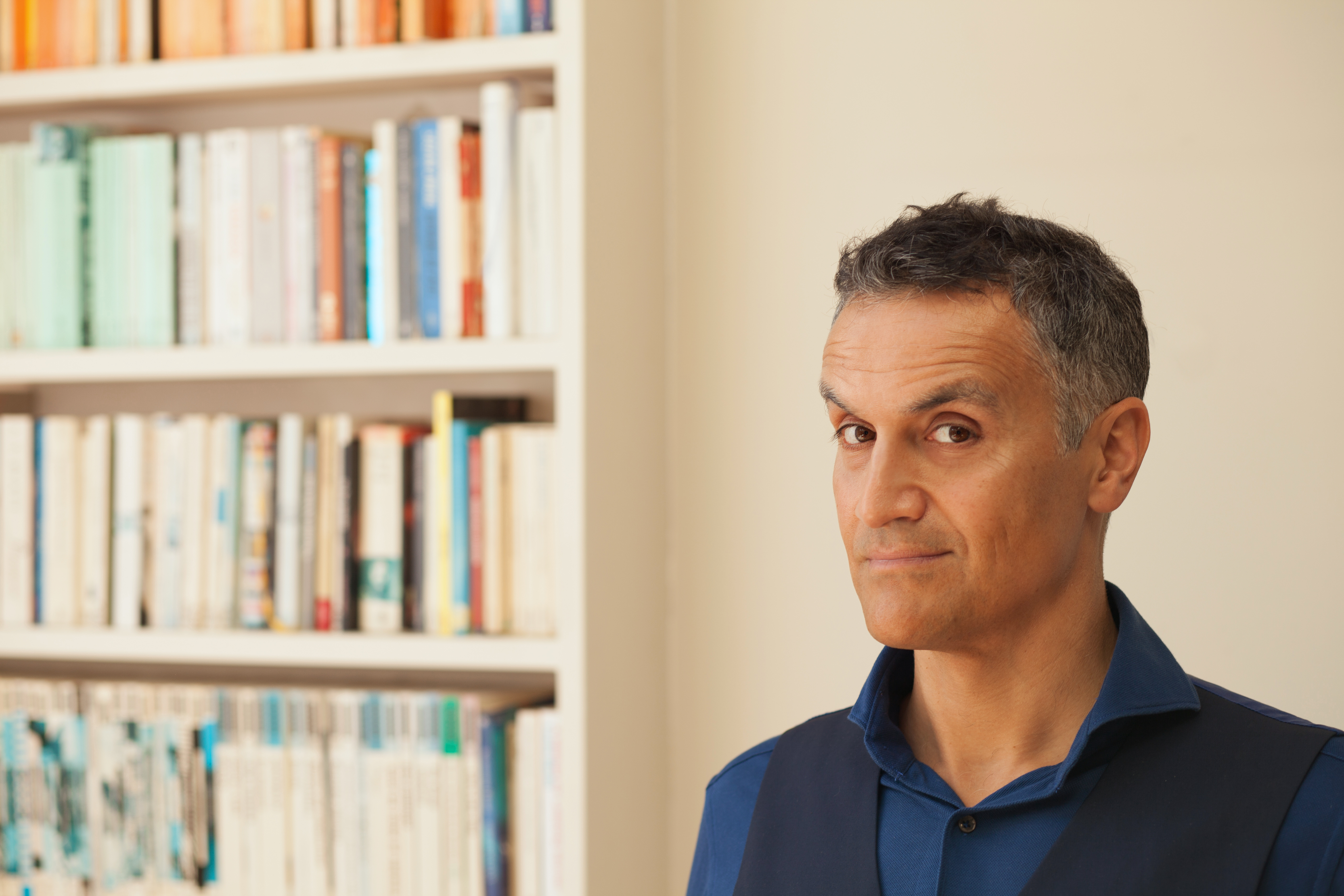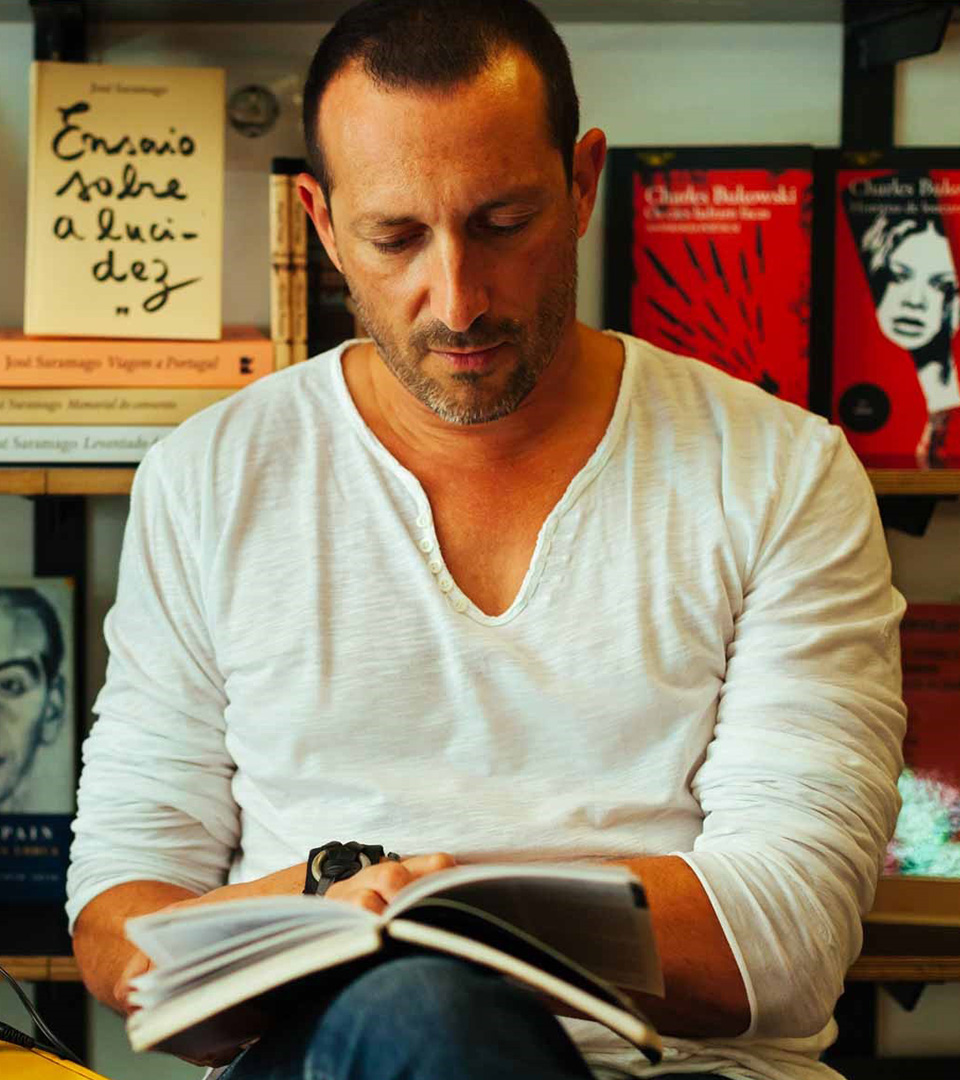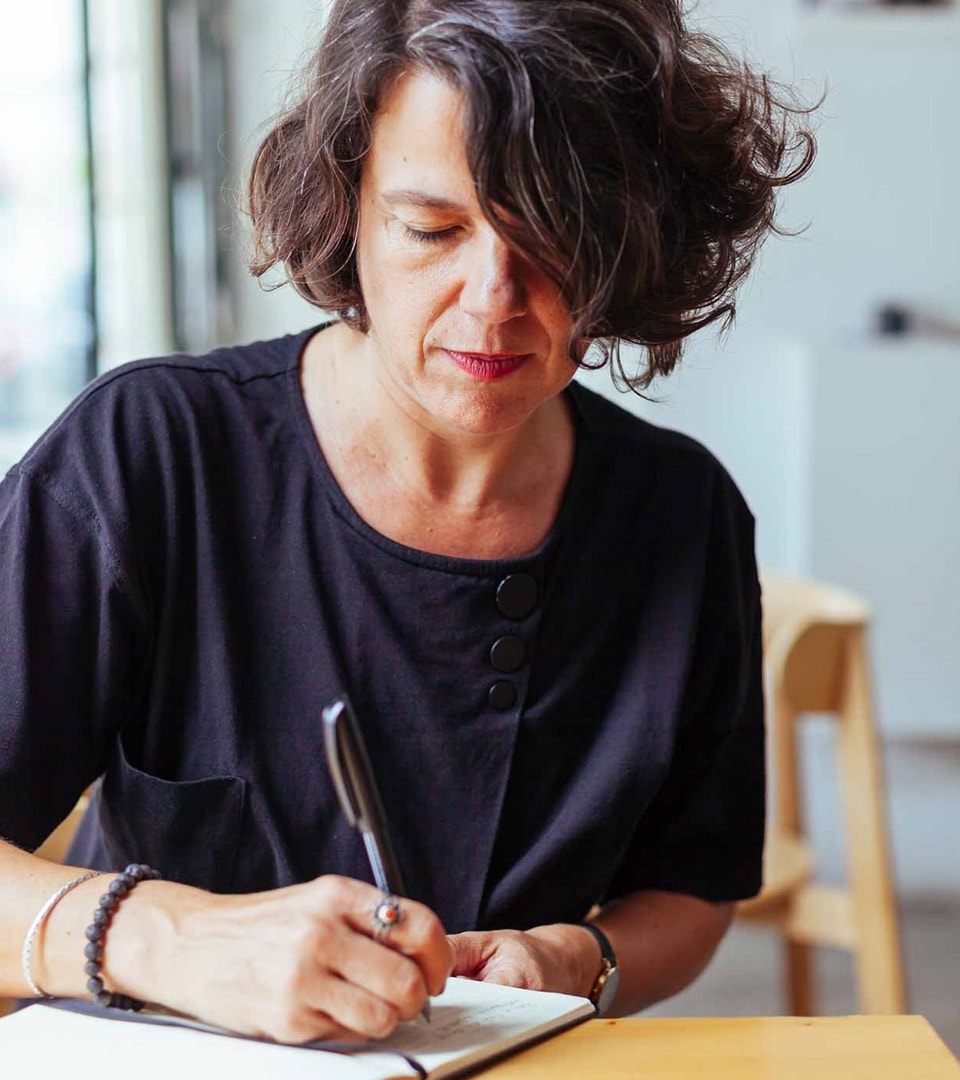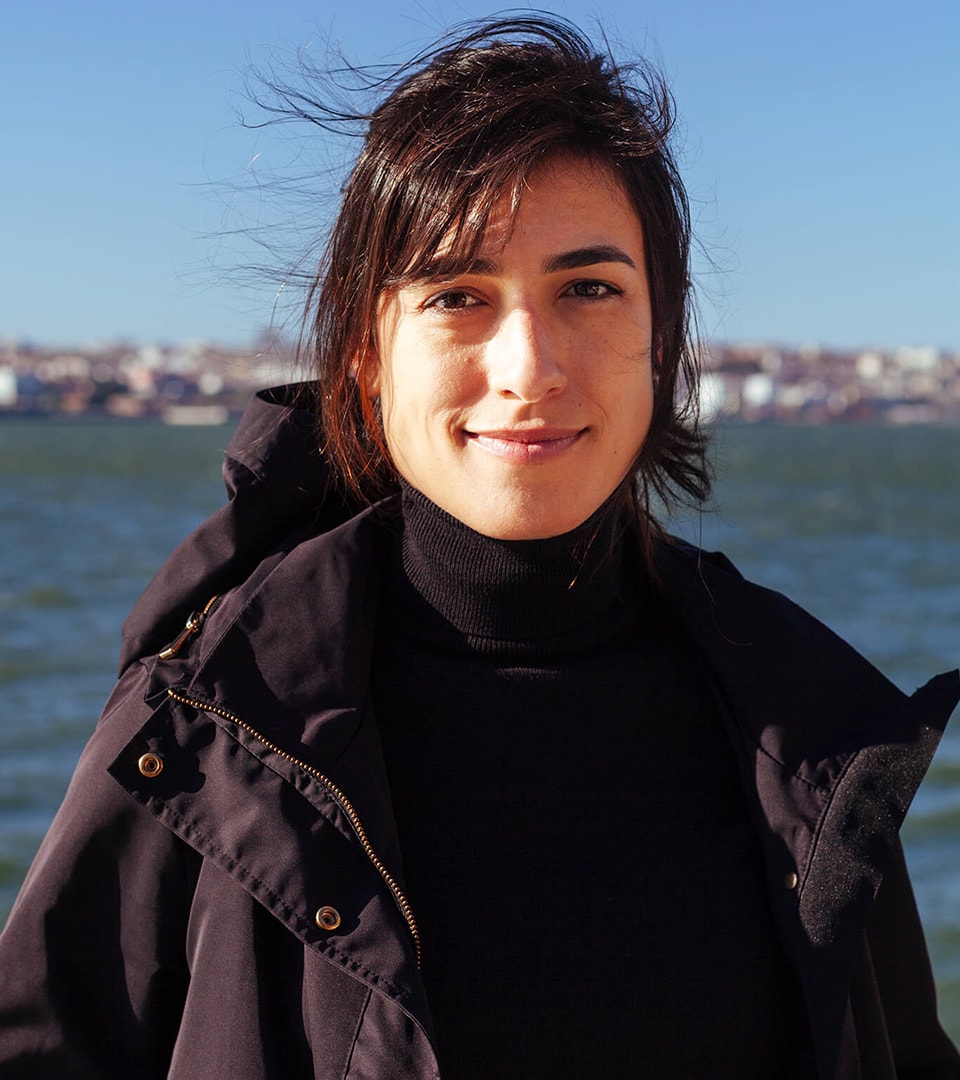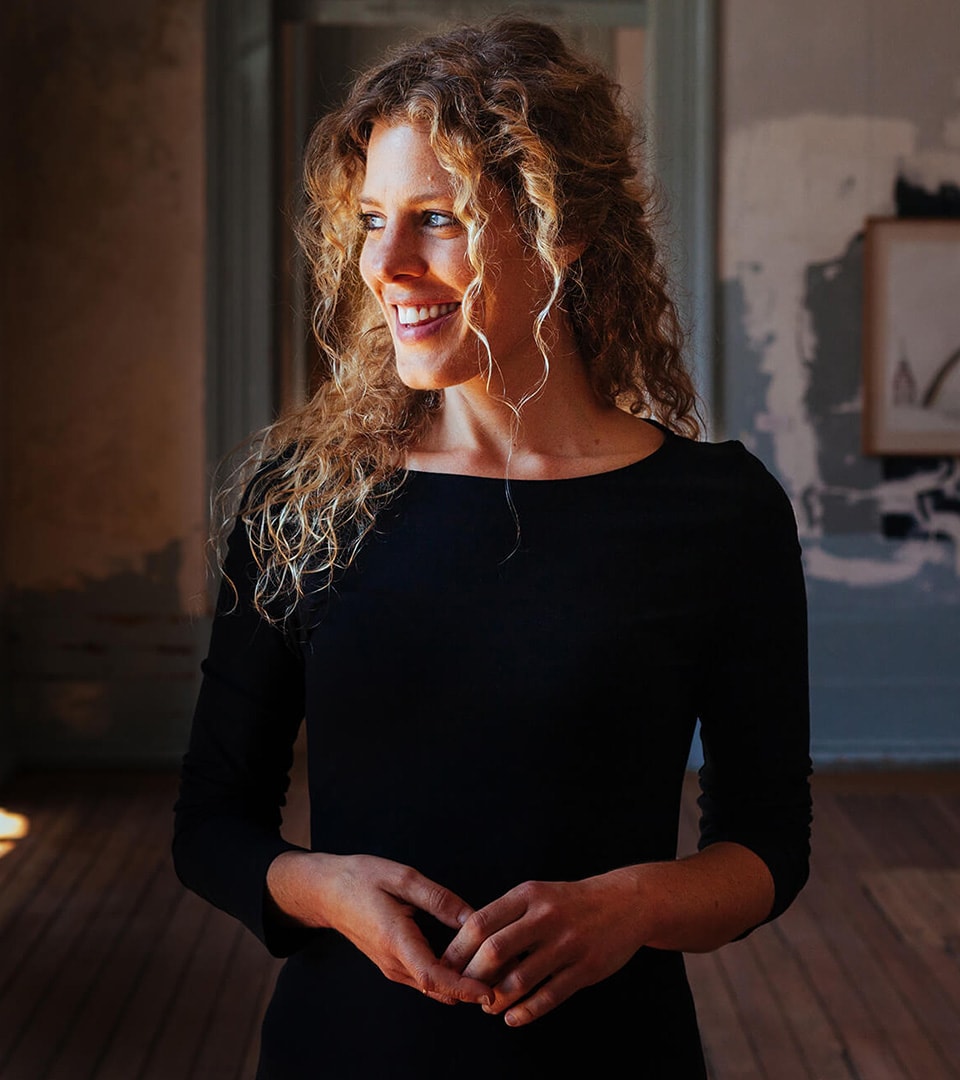MaartenFrankenhuis
Fancy going back to nature? It's not as simples as it seems.
Almost nothing goes slower than evolution, Maarten Frankenhuis (77), the former Amsterdam zoo director, veterinarian and researcher knows all about that. Esporão visited him in his house surrounded by greenery just outside Amsterdam and asked him the question: can modern man still return to a life like our early ancestors?
His answer followed in a three-hour private lecture on humans, animals, natural selection, reproduction and energy use. “Surviving in nature is not an easy job.”
"That fact that something edible grows in your own backyard, it does something to you."
"I love the ordinary sparrow that comes to eat the breadcrumbs here every day. It makes my mind wander wonderfully."
"Something is constantly happening in the brain. You can't say: I don't think about anything or I don't do anything."
"Playing is not a useless activity. It is aimed at survival, catching prey and winning future status. Again, everything is dominated by sexual selection. Playing is the perfect preparation for adult life."
What do you think about people saying that we are far removed from nature? “I can only agree with that. Children today often have no idea that milk comes from a cow, let alone cheese and butter. Albert Heijn has 55 chicken products on the shelves, of which only one is recognizable as chicken. That was different in my youth; all the dead animals just hung there in the shop window, the blood running out. It’s a shame we take everything we eat for granted today. The pride I experience when I come into the house from my garden with a large crop of endive is about as great as the pride I felt with my first-born. That fact that something edible grows in your own backyard, it does something to you.”
Where does your love for nature come from? “When I was five years old, I walked into the garden. We had many tall trees and I saw a multi-colored bird in one of them. I thought ‘that must be a tropical bird’. In retrospect, it turned out to be a Dutch bird that actually bred there. That fascination for everything that lives and grows has never disappeared. It makes little difference to me whether something is special or not. I love the ordinary sparrow that comes to eat the breadcrumbs here every day. It makes my mind wander wonderfully. Nowadays people look at their phones when they are bored, but I refuse to participate. I only have a phone with me when I go out alone. It is an old Nokia, it can only make calls and send text messages. Sometimes I pretend to take a picture with it so it looks like I fit in.”
So you prefer to watch birds over people? “I love watching birds, but I really have a special interest in reproduction, hormones and migration. What I find most interesting about that are evolution and sexual selection. Animals do not eat solely for survival, but for survival so that they can reproduce. Most animals have a specific breeding season and within that season there are certain ovulation cycles. Within such a cycle they are only fertile for a few days. In that sense, humans are very special animals. Not only because man is cyclical all year round, but because we are also prepared to mate 365 days a year. For pleasure too. The only animal that does that besides us is the female bonobo. If she’s in heat, she presents herself in the most shocking way, so there’s no mistaking what she wants. Beyond that, she uses the ancient human principle of quid pro quo. Every guy understands that, and so the male bonobo rushes into the forest looking for figs, bird eggs or nuts. If he comes back with something, he doesn’t give up his treasure right away because then the female can trick him. Only after the act does she receive her reward.”
That sounds a lot like prostitution. It seems that many things that happen in the animal kingdom are mirrored in human society. Yet at the same time, humans and animals are further apart than ever. Could we ever go all the way back into nature? “It is possible, but society is not geared toward it. You must be registered with the registry office, have a bank account and you cannot camp everywhere. In that respect, we are full of prohibitions and regulations. In addition, surviving in nature is no easy task. When I was on military service I sometimes squeezed the udders of a cow at night because I was so thirsty, dug up a few potatoes and pulled some onions from a field. But if that isn’t there, then you really need knowledge to know what you can eat. Everything is available in the wild, including medicines, but if you eat oleander, boxwood, yew and rhododendron, for example, it can be damn dangerous. You also have to be willing to learn and master many crafts if you want to survive in the Dutch nature, imagine laying traps, making fire and braiding fish pots.”
Do you think life with and in nature is relaxed? “Compared to farmers and livestock farmers, hunters and gatherers lounge around rather a lot. This is also acknowledged by the hunter-gatherer communities such as those in Papua New Guinea and the South American Indians. They spend many hours of the day napping, meditating and sharing stories. Once you know that hunting and gathering take considerably less time than farming, it is surprising that people switched to agriculture. Our life has changed enormously as a result. The traditional hunter-gatherer communities were rather egalitarian. The differences between men and women were also negligible. When we switched to livestock farming and agriculture, the idea of property first came into existence. That changed everything.”
And now we are crushing ourselves to keep hold of our property and at the same time, we want nothing more than to switch off. This is difficult because even if we are idling, our brain continues. “You have to remember that our brains make up five percent of our bodies, yet use twenty percent of the energy we put into them. Also at night. So something is constantly happening in the brain. You can’t say: I don’t think about anything or I don’t do anything. You can say: I am not reading, I am not studying or I am not doing the dishes. For example, I love being physically busy and doing stupid things like splitting wood or pruning the hedge. In that respect, we could do well to take example from the sloth, it really does not bother with anything. It hangs upside down, only eats leaves from the tree in which it hangs and has a specific kind of fur that allows the rain to drip from easily. The sloth only leaves his tree to poop.”
I have this idea that animals also play to relax. Is that right? “In particular, the activity of young animals relates to play. Human babies play all through childhood. The way different species play is different for predator and prey animals. Mother lion waves her tail, young cubs dive on it as if it is their prey. Prey animals such as zebra and young antelopes must always be alert and able to run damn fast. Playing is not a useless activity. It is aimed at survival, catching prey and winning future status. Again, everything is dominated by sexual selection. Playing is the perfect preparation for adult life.”
So why don’t we play as adults anymore? “Adult animals do not play because it costs too much energy. They can spend that energy in better ways. For example, predators are only busy preparing for mating, catching prey and looking for a partner. They must conquer territory, combatting with other male predators. There is nothing playful about that, but it does take a lot of energy. Catching prey is also energy-consuming, so most animals lie around all day until they see something pass by. The cheetah, for example, only catches half of what they go after. Half of that is taken by lions, hyenas, African wild dogs and leopards. So they only have a quarter left for themselves. The return is small and they have to endlessly recover after such a sprint. The aftermath is even more intense with lions who have to sleep after they’ve completed a full sprint.”
Would you say then that lions are lazy? “Not the females, but the males, they’re lazy bums. Those machos don’t do anything and let the females do all the work. Only if a female is really struggling to lift her prey, such as a giraffe, fully grown buffalo or an elephant will the males come to help.”
Have the roles ever been reversed? “Fortunately, the relationships between different animals are completely varied. Male seahorses have a breeding pouch in which females lay eggs. The eggs are fertilized by the male and then hatched by them. The males also take care of the young. In the jacana swamp bird species, females fight among themselves for the best territory. As soon as they’ve conquered a piece of land, they grab a male by the crest and force him to pair up with her. Then he is ordered to build a nest for her, where she lays her eggs. He hatches them, raises the young and in the meantime the female is busy again defining a new territory. In this way, she collects a whole male harem around her. Incidentally, it is a big misunderstanding that males alone choose their partner. Men must show what they have and often take the first steps. Women possess very subtle sensors with which they can feel whether he’s the one – or not. Females also express with subtle signals ‘don’t take a step further’ or ‘come closer’.”
How do female animals know if they have the right male on the line? “Just as with humans, other mammals are for the most part drawn towards odor. That odor is a reflection of the immune system: the Major Histocompatibility Complex or MHC for short. Scientists once did research about this on female mice and it appeared that they were looking for a male mouse with a MHC that differs the most from their own. That subsequently gives a maximum DNA crossing effect. A few years later, another study looked at whether this is also the case with people. Men wore a t-shirt for two days and two nights without washing it. These were put in a plastic bag with a barcode on. Women were asked to smell the shirts and to determine which guy they wanted to go for a night out with. It turned out that those women did exactly the same as those female mice. Only when women used hormonal contraception did they show the opposite: they mainly chose a body odor similar to themselves. This also explains why many women who stop taking birth control suddenly find their husbands smell unpleasant.”
You talk beautifully about evolution and animals, you organize safaris to the most extraordinary places in the world and you were the director of the Amsterdam zoo ARTIS, for 13 years. With all your knowledge and experience, how do you view captive animals now? “When I compare the beautiful series from the BBC and my past as a zoo employee, I conclude that those two worlds are completely different. We just have to remember that animals that live in zoos have been bred in zoos for generations. In fact, the phenomenon of domestication has already made its appearance there: the brain capacity of a number of animals raised in a zoo is, therefore, less, yet more flexible. I think it’s special because in captivity the advanced natural sexual selection system is being neglected in place of controlled breeding. That asks a lot of these animals, they have to adapt.”
Can animals that are dependent on people still survive in the wild? “A few dozen species of animals from captivity were returned to nature when the habitats were safe and poaching was abolished. This happened, for example, with the European bison, the wisent. In 1921 the last wild specimen was shot by a few hungry Polish soldiers. Only several zoos still had specimens. Under the leadership of the then Artis director, all wisents who lived in zoos were mapped, including the relationships between them. With that information, a breeding program was constructed and now there are herds of wisents living in Poland and Russia who’re doing very well. They have done the same with different kinds of desert antelopes; the very last wild specimens were caught and combined with zoo specimens which have led to an enormous new growth in the wild. And not only them but also many other animal species have been reintroduced. Ironically it is often iconic animals that become extinct, so when they are seen in the wild, it attracts tourists and the population realizes how important those animals are and how they can profit from that too. The entire habitat of the wisent, for example, has been therefore left alone. Thousands of plants, insects, amphibians and many other species are protected in this way, which is why it’s also important to keep focusing on those iconic animal species.”
Almost nothing goes slower than evolution, Maarten Frankenhuis (77), the former Amsterdam zoo director, veterinarian and researcher knows all about that. Esporão visited him in his house surrounded by greenery just outside Amsterdam and asked him the question: can modern man still return to a life like our early ancestors?
His answer followed in a three-hour private lecture on humans, animals, natural selection, reproduction and energy use. “Surviving in nature is not an easy job.”
"That fact that something edible grows in your own backyard, it does something to you."
"I love the ordinary sparrow that comes to eat the breadcrumbs here every day. It makes my mind wander wonderfully."
"Something is constantly happening in the brain. You can't say: I don't think about anything or I don't do anything."
"Playing is not a useless activity. It is aimed at survival, catching prey and winning future status. Again, everything is dominated by sexual selection. Playing is the perfect preparation for adult life."
What do you think about people saying that we are far removed from nature? “I can only agree with that. Children today often have no idea that milk comes from a cow, let alone cheese and butter. Albert Heijn has 55 chicken products on the shelves, of which only one is recognizable as chicken. That was different in my youth; all the dead animals just hung there in the shop window, the blood running out. It’s a shame we take everything we eat for granted today. The pride I experience when I come into the house from my garden with a large crop of endive is about as great as the pride I felt with my first-born. That fact that something edible grows in your own backyard, it does something to you.”
Where does your love for nature come from? “When I was five years old, I walked into the garden. We had many tall trees and I saw a multi-colored bird in one of them. I thought ‘that must be a tropical bird’. In retrospect, it turned out to be a Dutch bird that actually bred there. That fascination for everything that lives and grows has never disappeared. It makes little difference to me whether something is special or not. I love the ordinary sparrow that comes to eat the breadcrumbs here every day. It makes my mind wander wonderfully. Nowadays people look at their phones when they are bored, but I refuse to participate. I only have a phone with me when I go out alone. It is an old Nokia, it can only make calls and send text messages. Sometimes I pretend to take a picture with it so it looks like I fit in.”
So you prefer to watch birds over people? “I love watching birds, but I really have a special interest in reproduction, hormones and migration. What I find most interesting about that are evolution and sexual selection. Animals do not eat solely for survival, but for survival so that they can reproduce. Most animals have a specific breeding season and within that season there are certain ovulation cycles. Within such a cycle they are only fertile for a few days. In that sense, humans are very special animals. Not only because man is cyclical all year round, but because we are also prepared to mate 365 days a year. For pleasure too. The only animal that does that besides us is the female bonobo. If she’s in heat, she presents herself in the most shocking way, so there’s no mistaking what she wants. Beyond that, she uses the ancient human principle of quid pro quo. Every guy understands that, and so the male bonobo rushes into the forest looking for figs, bird eggs or nuts. If he comes back with something, he doesn’t give up his treasure right away because then the female can trick him. Only after the act does she receive her reward.”
That sounds a lot like prostitution. It seems that many things that happen in the animal kingdom are mirrored in human society. Yet at the same time, humans and animals are further apart than ever. Could we ever go all the way back into nature? “It is possible, but society is not geared toward it. You must be registered with the registry office, have a bank account and you cannot camp everywhere. In that respect, we are full of prohibitions and regulations. In addition, surviving in nature is no easy task. When I was on military service I sometimes squeezed the udders of a cow at night because I was so thirsty, dug up a few potatoes and pulled some onions from a field. But if that isn’t there, then you really need knowledge to know what you can eat. Everything is available in the wild, including medicines, but if you eat oleander, boxwood, yew and rhododendron, for example, it can be damn dangerous. You also have to be willing to learn and master many crafts if you want to survive in the Dutch nature, imagine laying traps, making fire and braiding fish pots.”
Do you think life with and in nature is relaxed? “Compared to farmers and livestock farmers, hunters and gatherers lounge around rather a lot. This is also acknowledged by the hunter-gatherer communities such as those in Papua New Guinea and the South American Indians. They spend many hours of the day napping, meditating and sharing stories. Once you know that hunting and gathering take considerably less time than farming, it is surprising that people switched to agriculture. Our life has changed enormously as a result. The traditional hunter-gatherer communities were rather egalitarian. The differences between men and women were also negligible. When we switched to livestock farming and agriculture, the idea of property first came into existence. That changed everything.”
And now we are crushing ourselves to keep hold of our property and at the same time, we want nothing more than to switch off. This is difficult because even if we are idling, our brain continues. “You have to remember that our brains make up five percent of our bodies, yet use twenty percent of the energy we put into them. Also at night. So something is constantly happening in the brain. You can’t say: I don’t think about anything or I don’t do anything. You can say: I am not reading, I am not studying or I am not doing the dishes. For example, I love being physically busy and doing stupid things like splitting wood or pruning the hedge. In that respect, we could do well to take example from the sloth, it really does not bother with anything. It hangs upside down, only eats leaves from the tree in which it hangs and has a specific kind of fur that allows the rain to drip from easily. The sloth only leaves his tree to poop.”
I have this idea that animals also play to relax. Is that right? “In particular, the activity of young animals relates to play. Human babies play all through childhood. The way different species play is different for predator and prey animals. Mother lion waves her tail, young cubs dive on it as if it is their prey. Prey animals such as zebra and young antelopes must always be alert and able to run damn fast. Playing is not a useless activity. It is aimed at survival, catching prey and winning future status. Again, everything is dominated by sexual selection. Playing is the perfect preparation for adult life.”
So why don’t we play as adults anymore? “Adult animals do not play because it costs too much energy. They can spend that energy in better ways. For example, predators are only busy preparing for mating, catching prey and looking for a partner. They must conquer territory, combatting with other male predators. There is nothing playful about that, but it does take a lot of energy. Catching prey is also energy-consuming, so most animals lie around all day until they see something pass by. The cheetah, for example, only catches half of what they go after. Half of that is taken by lions, hyenas, African wild dogs and leopards. So they only have a quarter left for themselves. The return is small and they have to endlessly recover after such a sprint. The aftermath is even more intense with lions who have to sleep after they’ve completed a full sprint.”
Would you say then that lions are lazy? “Not the females, but the males, they’re lazy bums. Those machos don’t do anything and let the females do all the work. Only if a female is really struggling to lift her prey, such as a giraffe, fully grown buffalo or an elephant will the males come to help.”
Have the roles ever been reversed? “Fortunately, the relationships between different animals are completely varied. Male seahorses have a breeding pouch in which females lay eggs. The eggs are fertilized by the male and then hatched by them. The males also take care of the young. In the jacana swamp bird species, females fight among themselves for the best territory. As soon as they’ve conquered a piece of land, they grab a male by the crest and force him to pair up with her. Then he is ordered to build a nest for her, where she lays her eggs. He hatches them, raises the young and in the meantime the female is busy again defining a new territory. In this way, she collects a whole male harem around her. Incidentally, it is a big misunderstanding that males alone choose their partner. Men must show what they have and often take the first steps. Women possess very subtle sensors with which they can feel whether he’s the one – or not. Females also express with subtle signals ‘don’t take a step further’ or ‘come closer’.”
How do female animals know if they have the right male on the line? “Just as with humans, other mammals are for the most part drawn towards odor. That odor is a reflection of the immune system: the Major Histocompatibility Complex or MHC for short. Scientists once did research about this on female mice and it appeared that they were looking for a male mouse with a MHC that differs the most from their own. That subsequently gives a maximum DNA crossing effect. A few years later, another study looked at whether this is also the case with people. Men wore a t-shirt for two days and two nights without washing it. These were put in a plastic bag with a barcode on. Women were asked to smell the shirts and to determine which guy they wanted to go for a night out with. It turned out that those women did exactly the same as those female mice. Only when women used hormonal contraception did they show the opposite: they mainly chose a body odor similar to themselves. This also explains why many women who stop taking birth control suddenly find their husbands smell unpleasant.”
You talk beautifully about evolution and animals, you organize safaris to the most extraordinary places in the world and you were the director of the Amsterdam zoo ARTIS, for 13 years. With all your knowledge and experience, how do you view captive animals now? “When I compare the beautiful series from the BBC and my past as a zoo employee, I conclude that those two worlds are completely different. We just have to remember that animals that live in zoos have been bred in zoos for generations. In fact, the phenomenon of domestication has already made its appearance there: the brain capacity of a number of animals raised in a zoo is, therefore, less, yet more flexible. I think it’s special because in captivity the advanced natural sexual selection system is being neglected in place of controlled breeding. That asks a lot of these animals, they have to adapt.”
Can animals that are dependent on people still survive in the wild? “A few dozen species of animals from captivity were returned to nature when the habitats were safe and poaching was abolished. This happened, for example, with the European bison, the wisent. In 1921 the last wild specimen was shot by a few hungry Polish soldiers. Only several zoos still had specimens. Under the leadership of the then Artis director, all wisents who lived in zoos were mapped, including the relationships between them. With that information, a breeding program was constructed and now there are herds of wisents living in Poland and Russia who’re doing very well. They have done the same with different kinds of desert antelopes; the very last wild specimens were caught and combined with zoo specimens which have led to an enormous new growth in the wild. And not only them but also many other animal species have been reintroduced. Ironically it is often iconic animals that become extinct, so when they are seen in the wild, it attracts tourists and the population realizes how important those animals are and how they can profit from that too. The entire habitat of the wisent, for example, has been therefore left alone. Thousands of plants, insects, amphibians and many other species are protected in this way, which is why it’s also important to keep focusing on those iconic animal species.”
MaartenFrankenhuis
Fancy going back to nature? It's not as simples as it seems.
Almost nothing goes slower than evolution, Maarten Frankenhuis (77), the former Amsterdam zoo director, veterinarian and researcher knows all about that. Esporão visited him in his house surrounded by greenery just outside Amsterdam and asked him the question: can modern man still return to a life like our early ancestors?
His answer followed in a three-hour private lecture on humans, animals, natural selection, reproduction and energy use. “Surviving in nature is not an easy job.”
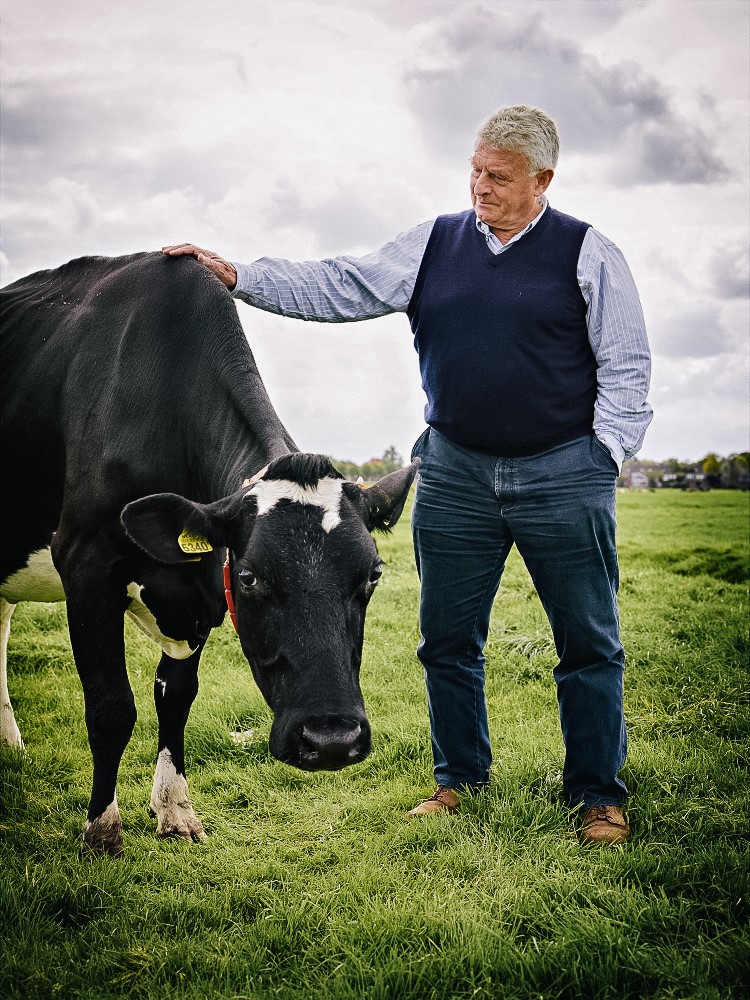
"That fact that something edible grows in your own backyard, it does something to you."
"I love the ordinary sparrow that comes to eat the breadcrumbs here every day. It makes my mind wander wonderfully."
"Something is constantly happening in the brain. You can't say: I don't think about anything or I don't do anything."
"Playing is not a useless activity. It is aimed at survival, catching prey and winning future status. Again, everything is dominated by sexual selection. Playing is the perfect preparation for adult life."
What do you think about people saying that we are far removed from nature? “I can only agree with that. Children today often have no idea that milk comes from a cow, let alone cheese and butter. Albert Heijn has 55 chicken products on the shelves, of which only one is recognizable as chicken. That was different in my youth; all the dead animals just hung there in the shop window, the blood running out. It’s a shame we take everything we eat for granted today. The pride I experience when I come into the house from my garden with a large crop of endive is about as great as the pride I felt with my first-born. That fact that something edible grows in your own backyard, it does something to you.”
Where does your love for nature come from? “When I was five years old, I walked into the garden. We had many tall trees and I saw a multi-colored bird in one of them. I thought ‘that must be a tropical bird’. In retrospect, it turned out to be a Dutch bird that actually bred there. That fascination for everything that lives and grows has never disappeared. It makes little difference to me whether something is special or not. I love the ordinary sparrow that comes to eat the breadcrumbs here every day. It makes my mind wander wonderfully. Nowadays people look at their phones when they are bored, but I refuse to participate. I only have a phone with me when I go out alone. It is an old Nokia, it can only make calls and send text messages. Sometimes I pretend to take a picture with it so it looks like I fit in.”
